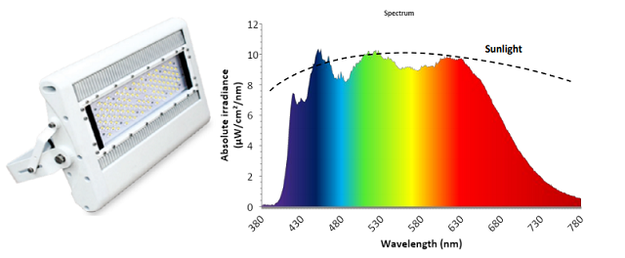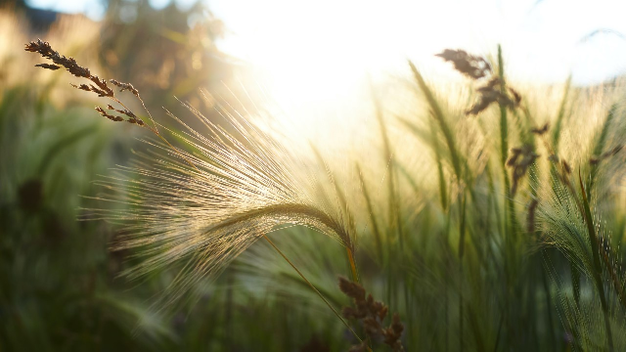Plants and more generally, photosynthetic organisms need light to live. Exposed to artificial light, plants implement adaptation processes. All these adaptation strategies are studied in agronomic research and plant biology laboratories, in particular at CEA Cadarache, within the Institut de Biosciences and biotechnologies d'Aix-Marseille (BIAM).
But how to reproduce natural light in these controlled laboratory environments? That was the objective of the Cadarache project which has started about two years ago.
Héloïse De Cock from Colasse talks about this project. “Colasse is specialized in the development of horticultural LED lighting since 2008 with its brand Vegeled and we had integrated a new technology last year. It is an LED produced by Seoul Semiconductor, called Sunlike, whose spectrum is very similar to the one of natural sunlight, and which has been approved as part of a prior collaboration between the teams of Colasse, BIAM, Seoul Semiconductor and Froids et Mesures who has conceived the phytotrons.”
The innovation allows Colasse to assemble a new range of horticultural lighting fixtures that will be mainly dedicated to the research community where it is important to get as close as possible to environmental lighting conditions.
Advantages
The biggest advantage of this product is that different kinds of LEDs no longer need to be combined to reproduce the natural light spectrum.

Thanks to this LED Sunlike which mimics the sunlight, researchers and growers will be able to grow all kinds of crops all year round. Moreover, they won't need to find a specific recipe for their plant.
Customers are testing
Other customers are interested too in this new floodlight and some of them are currently testing it in greenhouses. “We are still learning from those trials, but the first results are good. Colasse has already provided more than 150 floodlights and we hope that the best is yet to come.”

For more information:
Colasse
www.colasse.be
info@colasse.be
+3242252589
